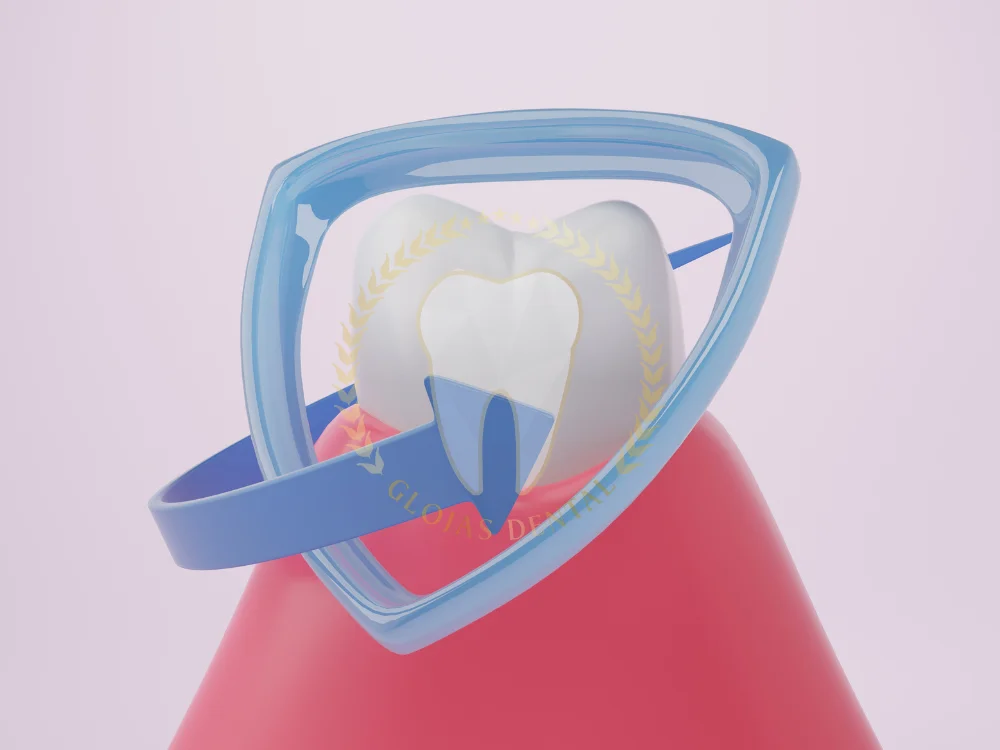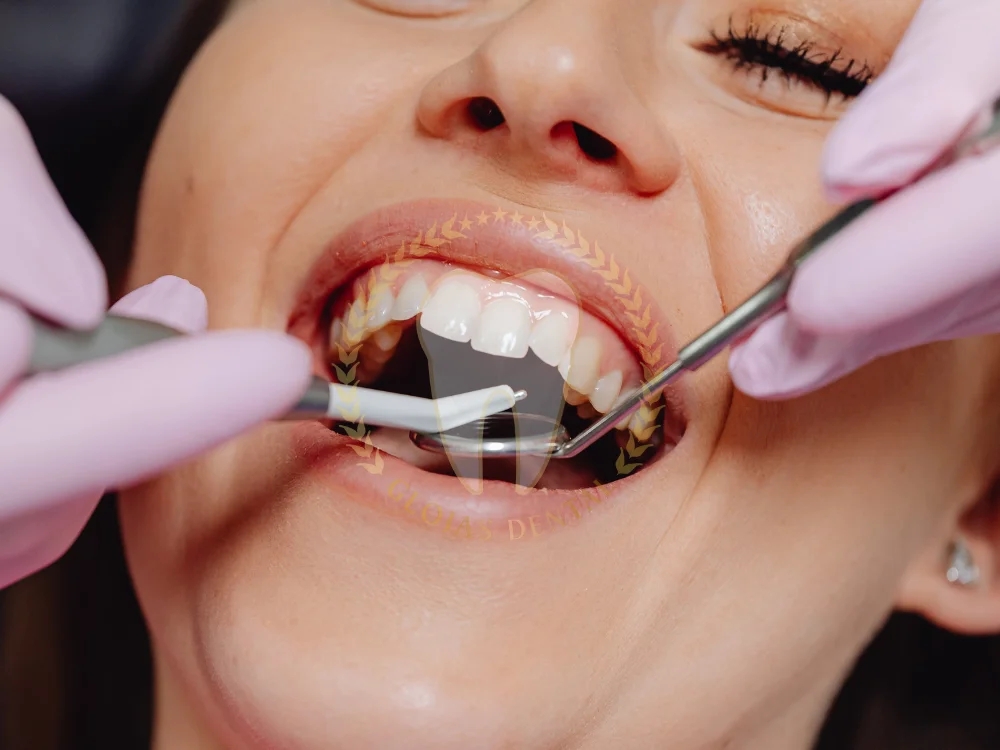Oral health is an essential component of overall well-being, and preventing dental cavities is a key aspect of maintaining a healthy smile. Cavities, or tooth decay, occur when bacteria in plaque produce acids that erode tooth enamel. While brushing and flossing are essential, certain areas of the teeth, such as the deep grooves or fissures, can be difficult to clean effectively.
Fissure sealants are a preventive dental treatment designed to protect these vulnerable areas. By filling in the grooves with a thin, plastic coating, fissure sealants create a barrier that prevents bacteria and food particles from becoming trapped, reducing the risk of decay. In this article, we will explore the benefits of fissure sealants, the procedure involved, and the factors that influence their cost.
What is a Fissure Sealant?
A fissure sealant is a thin, protective coating applied to the chewing surfaces of teeth, particularly the molars and premolars. These teeth have deep grooves and pits that can easily trap food particles and bacteria, leading to cavities.
The sealant acts as a barrier, preventing bacteria and food from settling into these crevices. It’s especially beneficial for children and teens, whose teeth are more prone to decay. However, adults without cavities in their molars can also benefit from this treatment.
How Does a Fissure Sealant Work?
Fissure sealants create a smooth surface over the natural grooves of the teeth. This makes it easier to clean the teeth with regular brushing and significantly reduces the risk of cavities. The process is quick, painless, and non-invasive.
Who Can Benefit from Fissure Sealants?
Children and Teens
Children are ideal candidates for fissure sealants as their newly erupted permanent molars are at high risk for decay. Applying sealants soon after the molars come in can safeguard them during the most vulnerable years.
Adults Without Decay
Adults with no history of decay in their molars can also opt for fissure sealants as a preventive measure.
Patients with Special Needs
For individuals who struggle with regular oral hygiene practices, fissure sealants offer an additional layer of protection.
The Fissure Sealant Application Process
1. Cleaning the Tooth Surface
The dentist begins by thoroughly cleaning the tooth surface to remove any plaque or debris from the grooves.
2. Preparing the Tooth
A special solution is applied to the tooth to make the surface slightly rough. This helps the sealant bond better to the enamel.
3. Applying the Sealant
The fissure sealant is painted onto the tooth’s chewing surface. It flows into the grooves and pits, covering them completely.
4. Hardening the Sealant
A curing light is used to harden the sealant within seconds, creating a durable protective layer.
Benefits of Fissure Sealants
1. Prevents Cavities
The primary benefit of fissure sealants is the effective prevention of cavities in the back teeth, which are hardest to clean.
2. Cost-Effective
Investing in fissure sealants is far cheaper than dealing with fillings, root canals, or other restorative dental treatments.
3. Quick and Painless
The application process is quick, taking only a few minutes per tooth, and involves no drilling or discomfort.
4. Durable Protection
Sealants can last for up to 10 years with proper care, providing long-lasting protection against decay.
5. Safe for All Ages
Fissure sealants are safe for both children and adults, with no adverse effects.
6. Improves Oral Hygiene
By creating a smoother surface, sealants make it easier to brush and remove plaque effectively.
7. Reduces Dental Anxiety
By preventing cavities, fissure sealants reduce the likelihood of needing invasive treatments like fillings or extractions, easing dental anxiety.
Fissure Sealant vs. Fluoride Treatment
Although both fissure sealants and fluoride treatments aim to prevent tooth decay, they function differently:
- Fissure Sealants: Provide a physical barrier to block out bacteria and food particles.
- Fluoride Treatment: Strengthens the tooth enamel, making it more resistant to decay.
Combining both treatments offers the best protection against cavities.
Cost of Fissure Sealant
The cost of fissure sealants depends on factors such as the location of the dental clinic and the number of teeth treated. On average:
- Per Tooth: $30–$60
- Full Mouth: $120–$240
Many dental insurance plans cover fissure sealants, especially for children, as it is considered a preventive treatment.
Caring for Teeth with Fissure Sealants
Maintaining fissure sealants is easy and involves regular oral hygiene practices:
- Brush twice daily with fluoride toothpaste.
- Floss to remove debris between teeth.
- Visit the dentist regularly for check-ups to ensure the sealants remain intact.
Common Myths About Fissure Sealants
1. “Sealants are Only for Kids”
While children benefit greatly, adults with healthy molars can also use fissure sealants as a preventive measure.
2. “Sealants Last Forever”
Sealants are durable but not permanent. They may need reapplication after 5–10 years.
3. “Applying Sealants is Painful”
The application process is completely painless and requires no anesthesia or drilling.
4. “Sealants Can Replace Regular Brushing”
Sealants supplement oral hygiene but do not replace regular brushing and flossing.
FAQs About Fissure Sealant
1. What is a fissure sealant used for?
A fissure sealant is used to protect the chewing surfaces of teeth from cavities by sealing the grooves and pits where bacteria often accumulate.
2. How long does a fissure sealant last?
Fissure sealants typically last between 5 and 10 years with proper oral care and regular dental check-ups.
3. Is the application of fissure sealant painful?
No, the application process is completely painless and non-invasive, making it suitable even for children.
4. At what age should children get fissure sealants?
Children should get fissure sealants as soon as their permanent molars erupt, usually between the ages of 6 and 14.
5. Do fissure sealants work on already decayed teeth?
No, fissure sealants are preventive and cannot be applied to teeth with existing decay.
6. Are fissure sealants covered by insurance?
Yes, many dental insurance plans cover fissure sealants, especially for children, as they are a preventive treatment.
Conclusion
Fissure sealants are a simple yet effective preventive dental treatment that can significantly reduce the risk of tooth decay, particularly in children and adolescents. By filling in the deep grooves on the chewing surfaces of teeth, fissure sealants create a protective barrier that prevents food particles and bacteria from accumulating and causing cavities. By investing in fissure sealants, you can protect your teeth from decay, maintain optimal oral health, and save money on future dental expenses.



